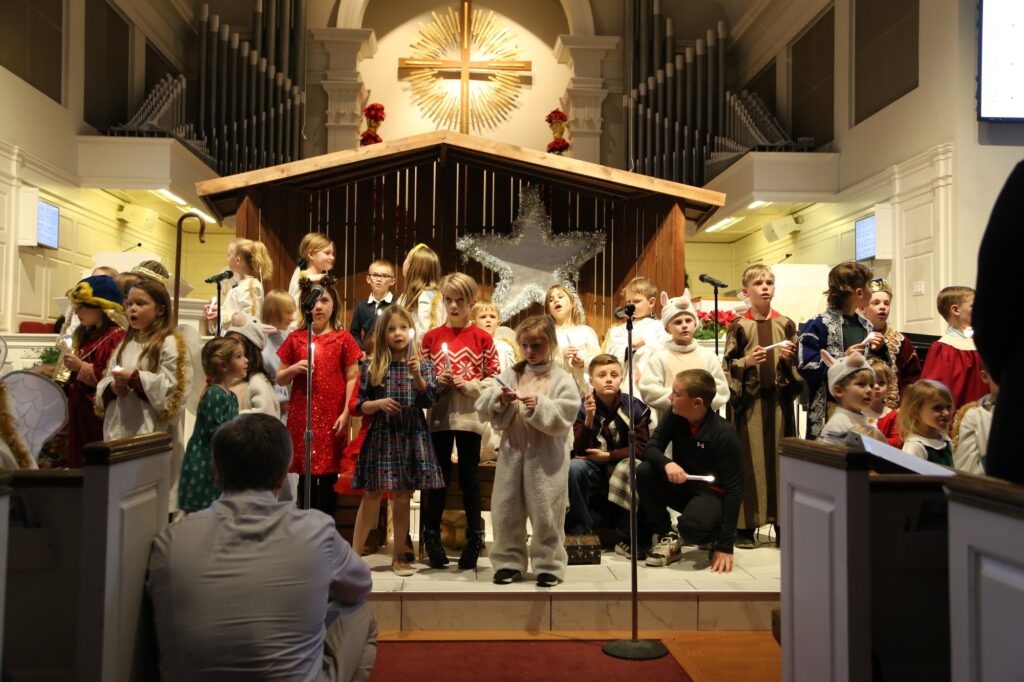In my sermon from this past Sunday, we discussed the parable of the lost sheep. In the parable, the shepherd loves the lost sheep so much that he refuses to give up on it. He goes searching through the wilderness doing whatever he has to do to bring it back. So even though no shepherd in their right mind would leave 99 sheep behind to go searching for one lost sheep, this is no ordinary shepherd. This shepherd is driven by love and will do anything to get that lost sheep back.
I really do love this parable. The imagery of the shepherd seeking after the lost sheep is central to the Christian faith because it reinforces the idea that God loves us unconditionally and will never abandon us. Indeed, the implication of this parable is that we as Christians should do the same for each other. When we come across a lost sheep, we should be like God and pursue the lost sheep with love. The harder question we face as Christians is to define who qualifies as a lost sheep?
An obvious example is people struggling with addiction. Addictions are compulsions where a person must engage in those behaviors regardless of the consequences. People can be addicted to all sorts of things: alcohol, drugs, gambling, pornography, food, even work. Addicts often have little to no perspective on how their actions are impacting themselves and others. This is why the first step in their recovery is recognizing that they have a problem. Until you can see how what you are doing is harmful, then you will be a lost sheep wondering in the wilderness.
Another obvious example is people who engage in socially destructive behaviors: stealing, violence, rape, physical and emotional abuse, neglect, and dishonesty will all send you down a bad path. Again, until a person recognizes how these things are a problem, they will not be able to recover and the goal of the shepherd is to help the lost sheep to see the error of their ways.
However, perhaps the most challenging kind of lost sheep to find are those who are subject to misguided beliefs. The reason why this is so hard is because, in our own minds, we are always right. I’m sure almost all of you reading this, when you saw “misguided beliefs,” automatically thought, “Well, that doesn’t apply to me!” The question you have to ask yourself is, “How do I know my beliefs aren’t misguided?”
In the parable, Jesus is speaking to the Pharisees who are judging the people in the crowd for not living the “right” way. Jesus tells the parable as a means of calling out their judgmental attitudes, but Jesus also wants the Pharisees to consider something more fundamental—perhaps your way of looking at the world is wrong?
One of the most important lessons I have ever taken away from Jesus is disposing of the assumption that my way of thinking is the right way of thinking. If you listened to my sermon from Sunday, you know that I used to be very judgmental of anyone who didn’t see the world through my specific lens. Indeed, one of the gravest sins Jesus highlights again and again are the people who are so entrenched in their own way of seeing the world that they automatically dismiss any deviation from their perspective as inferior.
As a result, I always keep an open mind. My ideas are constantly shifting and changing because Jesus has taught me time and again that there’s always more to learn. There have been occasions where I’ve disposed of entire schools of thought because new information comes along and forces me to reevaluate everything. All this to say, I don’t want to become a lost sheep because I am so committed to one way of thinking that I can’t see my way out of the wilderness.
By the way, if you’re reading this and you’re thinking about how this person or that person who disagrees with you needs to read this because they are entrenched in a specific way of thinking and you’re not considering how having “misguided beliefs” applies to you, then you very well might be a lost sheep. Just remember the first step towards recovery is admitting you have a problem.
The point I hope you take away from this devotional is that we are all lost sheep. It’s more obvious for some than for others, but there is not a single person who is not lost in some aspect of their lives. The question you have to consider is whether or not you want to be found? Do you want your thinking and way of life to be challenged by Jesus?
In my experience, I have found many Christians have no desire to have their world challenged, rearranged and turned upside down. We would rather walk around believing we are right than endure the hard work of examining our assumptions and determining where we might have gone astray. My hope and prayer for you today is that you might be humble enough to acknowledge that you might be in need of a shepherd to find you and bring you home.
I want to end with a prayer that I pray at the beginning of most days. Perhaps you will pray it with me: God, strip me of my arrogance that I might see the error of my thoughts and actions. Humble me and give me the strength to accept that what I know is limited. Help me to see different possibilities that I have never previously considered so that I might be a better person today than I was yesterday. Amen.
– Pastor Alex




